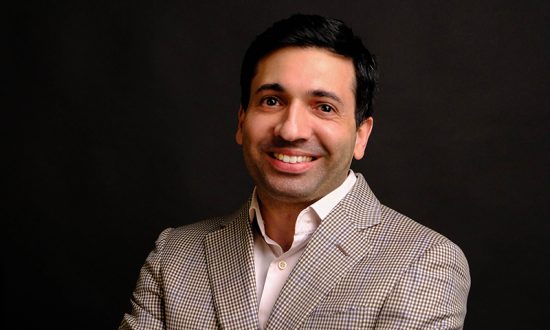A first-generation entrepreneur, Dr Jitin Chadha is the Founder Director of Indian Institute of Art and Design and Indian School of Business and Finance. Dr Chadha was awarded his Doctorate in Finance in 2011, in a grand ceremony chaired by the HRD Minister, Kapil Sibal and Prof. Dinesh Singh, Vice-Chancellor, Delhi University.
Higher education plays an important role in promoting human as well as societal well-being and contributes towards sustainable livelihoods and economic development of the nation. As India moves towards becoming a knowledge economy and society, more and more young Indians are likely to aspire for higher education. However, 63% of the youth aged between 20-24 are unemployed. Despite the large number of graduates that Indian higher education institutes churn out each year, a significant number of them do not have the required skills to find work opportunities as per industry standards. The Indian Higher Education system, as a result, seems to currently be in a state of crisis. There are several deep-rooted issues that are not only critical to acknowledge but also find the solution for in order to pave the way for a better, more balanced and holistic education system. These cracks beneath the surface became increasingly discernable with the recent Delhi University cut-offs. The unrealistically high marks that students were forced to measure themselves to point towards some of the major problems that afflict the Higher Education system in India. The first step to better comprehending, contextualizing and ultimately overcoming these issues is understanding where Indian colleges and universities stand on a global platform. One of the reputed systems of global benchmarking used the world over is the QS ranking.
At present, our universities rarely make it even to the top 100 in the QS global rankings. This system offers a methodological framework for measuring the performance of educational institutes across the world. For Indian higher education to be globally accepted it is imperative that India be part of the QS rankings. This will not only structure the way in which teaching and learning outcomes are measured but will also ensure that colleges and universities can be held accountable for the manner in which they impart education. The parameters identified by the QS World University Rankings span six simple metrics that include: academic reputation, employer reputation, faculty/student ratio, citations per faculty, international faculty ratio and international student ratio. When looking at these metrics in greater detail it becomes evident that Indian education is starkly different from the education that is imparted by foreign universities. The Indian education system places much greater emphasis on theoretical and rote learning than it does on practical implementation, experimentation and research. The focus is primarily and narrowly placed on simply knowledge and information accumulation, instead of learning how to apply this information in the real world. The QS system places weight age on a more holistic learning experience that acknowledges that much of our world is interconnected and an amalgamation of subjects, techniques and skills provide for the best balance to flourish in today’s day and age.
Despite these differences, however, Indian students learn to not only adjust but do well when they go abroad for their higher education. Through proper guidance provided by the faculty, necessary resources and focus, hard work and determination Indian students are able to overcome the challenges that crop up due to the research-driven and more practice-based education which they are not accustomed to. This highlights that there is not a lack of talent or skill but simply a need to nurture and hone it. This is where Indian educational institutes come in. It is vital that these educational spaces provide students with the right kind of guidance, structure and exposure. The ancient notion of a ‘knowledge of many arts’ or what in modern times is often called the ‘liberal arts’ must be brought back to Indian education, as it is exactly the kind of education that will be required for the 21st century. Imaginative and flexible curricular structures will enable creative combinations of disciplines for study, and would offer multiple entry and exit points, thus, removing currently prevalent rigid boundaries and creating new possibilities for life-long learning. The National Education Policy (NEP) which was approved in July last year offers such a qualitative strengthening of educational institutes. Incorporating the multifarious facets of the NEP points will help develop a new and flexible understanding of education in the country.
A QS ranking system for Indian universities may be the first plausible solution that ensures that colleges hold themselves accountable for the way in which teaching and learning is structured. Even more imperative, however, is focusing on creativity when it comes to education. This not only enables students to learn in a more stimulating environment but it also leads to personal development and growth. Problem-solving, thinking out of the box and an eagerness to accept and understand varied perspectives and perceptions is crucial. As we move forward it is vital we rethink the way in which our universities are structured for ultimately higher education must lead to knowledge creation and innovation and thereby contribute to a growing national economy.


